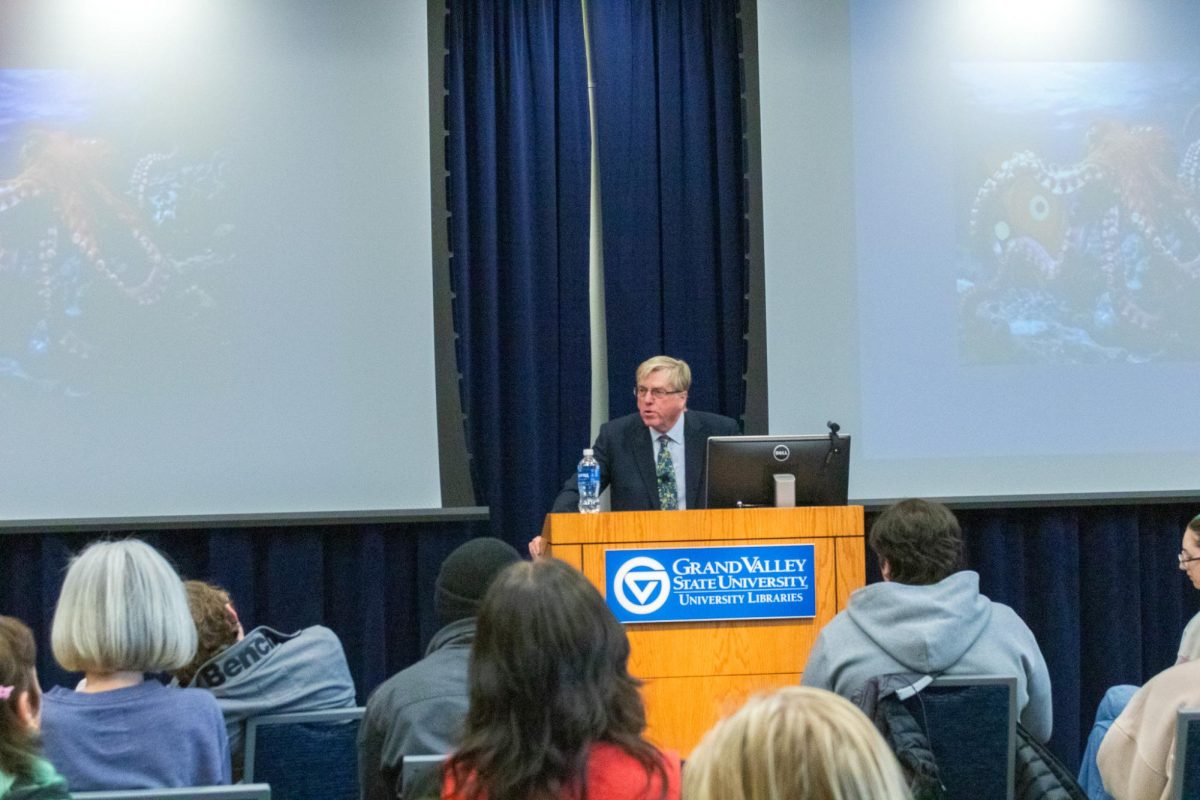Spare a little satanic sympathy
Jul 15, 2019
Beware: Those who fear the worship of great evils dare not venture further. Those who think I’m full of it, inquire within.
We, a group of four to six, huddle around a table, listening to our leader read what we all consider an unquestionable truth. The looming guilt that some would deem it unholy fills our thoughts, but is quickly dismissed when we assume names only spoken of in other tongues. Suspenseful music fills the room as we clutch small idols representing ourselves and hope that the strange, geometric shapes we worship are kind to us in exchange for our loyalty.
We’ve been publicly denounced in the media, called sinners within the sermons of various religious circles and amongst concerned families.
When James Dallas Egbert III shot himself in 1980, the press claimed he was one of us. They uncovered his tools of worship and called for its end.
Letters to the editor and guest columns of the same era warned the public of the sins associated with this kind of weekly ritual. It promoted war, lust and greed, they said, as worshipers would decapitate beasts and defile morality for glory.
Here we are, in the public eye once more. But this time, we’re associated with otherworldly evils, trivial pastimes and Netflix exclusives.
I couldn’t have been more excited.
Frankly, I was at first thankful that Dungeons & Dragons, the now-popular fantasy roleplaying game, had gone mainstream. My quietly-kept hobby was finally cool and I was ecstatic that swaths of people had an interest in it for the first time this millennium.
But then that excitement was replaced with a sense of deep sorrow and regret.
Just 40 years ago, people spoke of the game with hushed voices as the threat of being beat up, forced to do community service or, worst of all, being deemed a nerd, was omnipresent. It forced roleplayers into basements, hiding behind DM screens and below hoods made from old shirts and towels.
Now, the Stranger Things Dungeons & Dragons Starter Set shares a cute display at Target with Toy Story merchandise in the middle of the aisle. Luckily, the unappropriated, classic starter set is tucked away with Monopoly and CandyLand in the board game section, which is where most of the satanic worship happens anyway. At least the real fans have some sort of haven.
When Target throws a couple of rainbow shirts on a shelf to celebrate Pride Month, people throw a fit. But when they capitalize on and publicly support tools that allow children to indulge in satanic vices, people giggle because Stranger Things and retro culture are totally “in.” Come on, people, let’s get our priorities straight.
These aren’t the values we stand for. The outspoken Christians of the 80s made one hell of an argument that playing Dungeons & Dragons would tumble kids into a life of sin, and I respect that. But this new argument that roleplaying is trendy — or even worse, that it’s cool — is where I draw the line.
When you support the appropriation of this subculture, you’re encouraging the use of spindown dice as roleplaying-legal, twenty-sided dice. You’re allowing grown men and women to choose high-school-aged Stranger Things characters as their champions instead of the mighty fantasy warriors the game’s glory was built upon.
Worst of all, you’re replacing the eldritch prince of darkness that is the original demogorgon with some dude with a toothy flower for a face. Natural one. Pathetic.
I’ll take a couple punches from jocks to preserve the original spirit of Dungeons & Dragons. I’ll wear “dork” as a badge of honor when I need to and dodge wedgies along the way. I’ll even give my 25 cents of lunch money like 80s roleplayers used to.
For now, keep my dice and books out of your Twitter timelines and Netflix binges. Pop culture has dragged the game into the light and dressed it up like an Instagram influencer for cheap laughs and a quick buck.
Can’t a nerd sin in peace?























